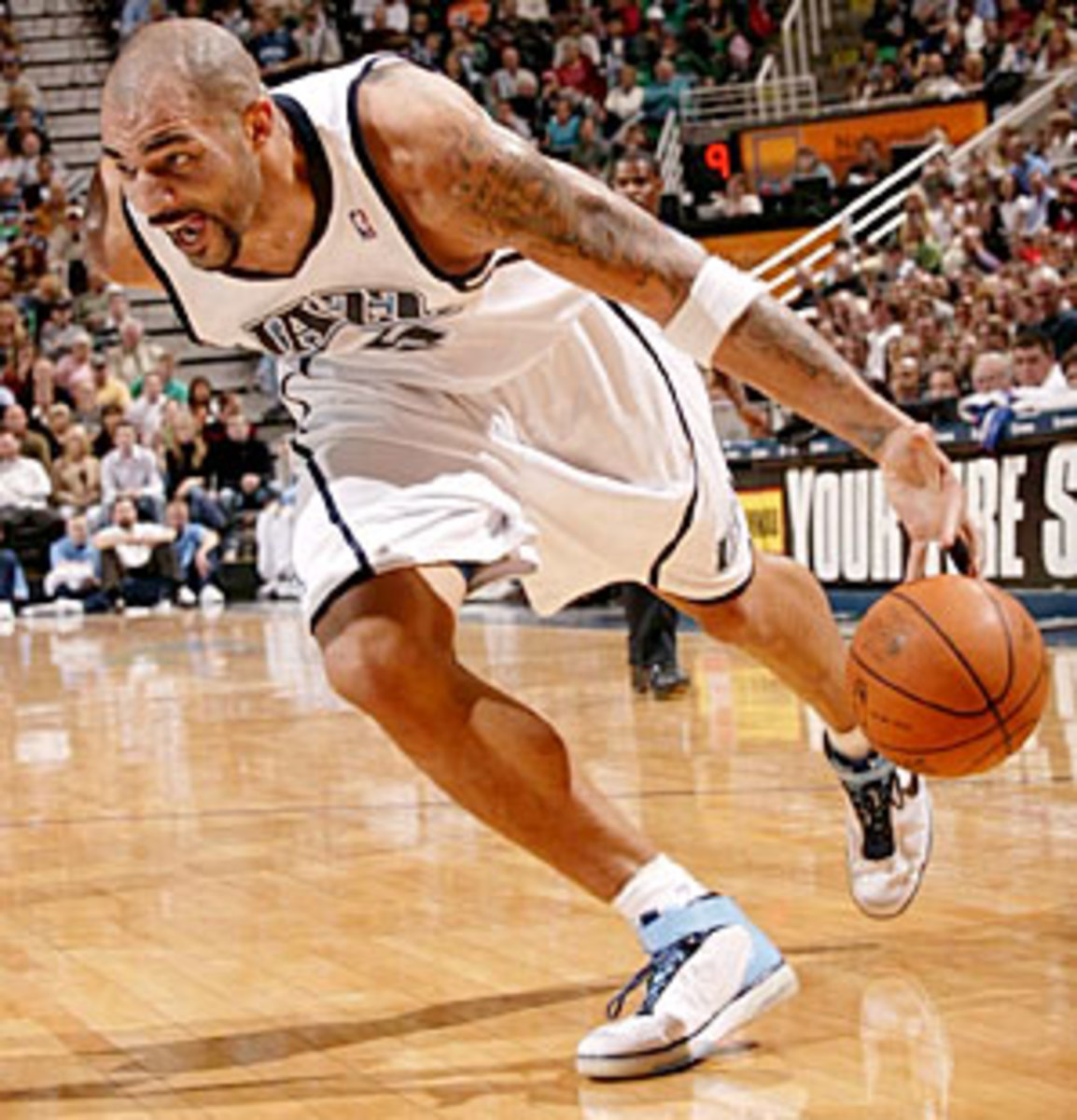Season preview: Utah Jazz
• Last season: 54-28; lost in second round of playoffs to Lakers
• Notable additions: Brevin Knight (trade with Clippers), Kosta Koufos (R)
• Notable losses: Jason Hart (trade with Clippers)
• Coach: Jerry Sloan (995-596 in 20 seasons with Jazz; 1,089-717 overall in 23 NBA seasons)
1. An ever-maturing Deron Williams. Backup though he was, Williams earned mucho respect from U.S. teammates and coaches during the gold-medal run in Beijing. The fourth-year point guard no doubt benefited from the experience and the infusion of confidence. (Not that he ever lacked confidence.)
2. The talent is there. Sloan, entering his 21st season in Utah and 24th on an NBA bench, has called this Jazz team the most talented he's coached. The Jazz bring back last season's starting five as well as all of their top reserves, and they added skilled 7-footer Koufos with the 23rd pick in the draft.
3. Andrei Kirilenko seems to be on board. He's in the middle of a nice contract that still has three years and nearly $50 million left. Kirilenko and Sloan appear to have worked things out, suggesting that he will not be a drain on team chemistry. And Kirilenko has said he would have no problem coming off the bench if Sloan desires.
1. Can they play championship-caliber defense? While the Jazz feature one of the NBA's best and most efficient offenses, the defense (especially inside with Boozer and Mehmet Okur) is another story. They ranked 17th in field-goal-percentage defense and 22nd in blocks last season while committing more fouls and allowing more free throw attempts than any other team. Not surprisingly, Sloan has emphasized defensive improvements during the preseason. "We've got a lot of offensive thinkers on our team, and somebody needs to step to the front from the defensive end of the floor," Sloan told reporters recently.
2. Carlos Boozer: True superstar or not? Boozer, predictably, was a total professional during his Beijing experience, but he didn't see much confidence-building action. And, with free agency looming next July (the power forward is one of several potential Jazz free agents), he still must make up for last season's playoff failure: Boozer averaged 21.1 points on 54.7 percent in the regular season but only 16.0 points on 41.5 percent shooting in 12 playoff postseason games. "I'm sure that's probably motivating him," Williams told the Salt Lake Tribune. "People were kind of writing him off after a couple bad weeks."
3. Harpring's health. The reliable reserve, a 49.2 percent shooter in six seasons with the Jazz, has been sidelined during the exhibition season while recovering from an ankle infection. Harpring's absence has prompted Sloan to experiment with Kirilenko in a reserve role because the coach likes having a veteran in that spot.
A change in the atmosphere. For the first time in history, a Jazz arena will go dark. Williams was among those lobbying for a lighting system that would enable the home starters to be introduced in the dark, a bow to drama that is done in every other NBA arena. It's always a good idea to keep the players happy, of course, but Utah was 37-4 in EnergySolutions Arena last season with the lights on.
It's no secret that Sloan's offense produces a lot of easy baskets: The Jazz attempted an NBA-high 39 percent of their shots from inside (6 feet or closer) last season.
There's no reason that the Jazz should sink below last season's finish as the West's No. 4 seed, but is there a compelling reason to think Utah will rise? Well, sure. Williams will be trying to surpass Chris Paul in their battle for point guard supremacy; inside tough guy Paul Millsap, inch-for-inch and pound-for-pound perhaps the best rebounder in the NBA, will be playing for a new contract and recognition as an upper-tier player; and the core group should have a sense of urgency knowing that this could be its last year together because of free-agent uncertainty. But can the Jazz defend well enough to win the Western Conference? The best guess is no.





